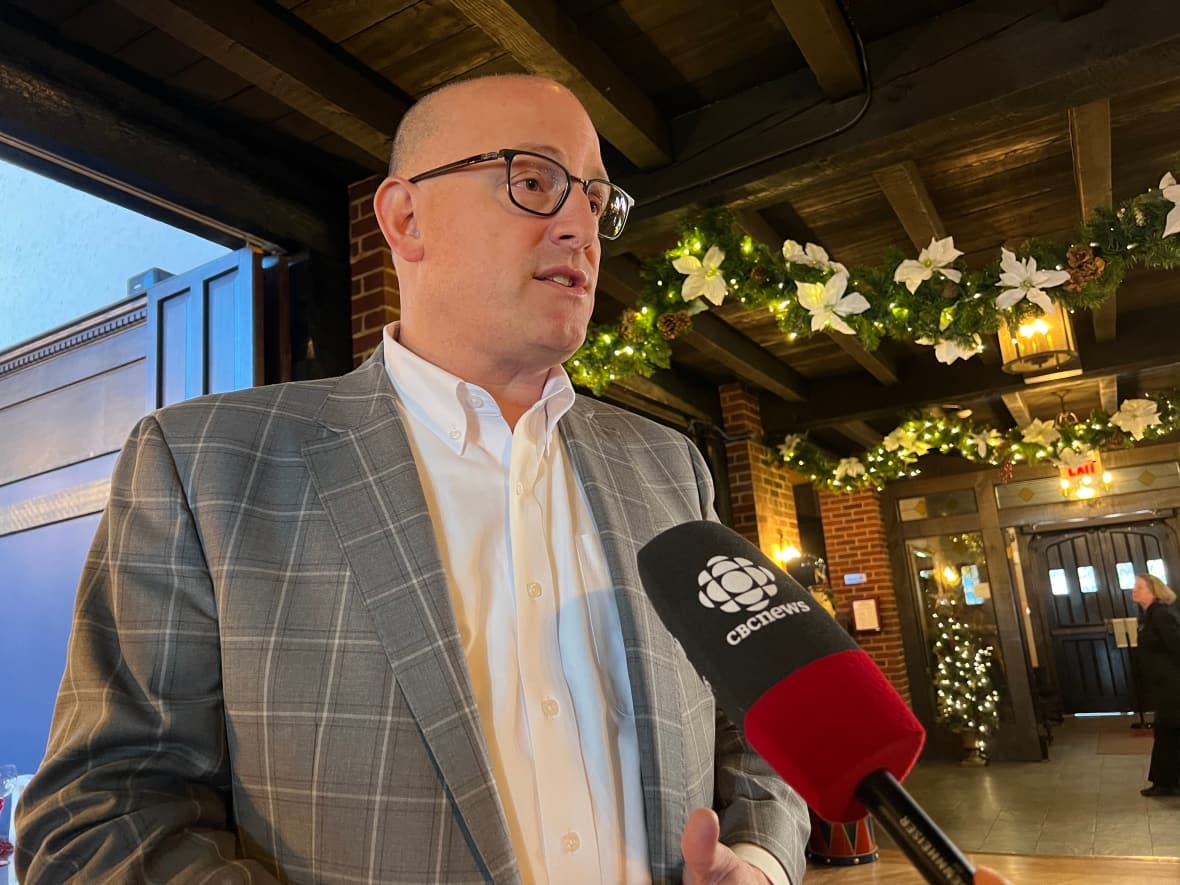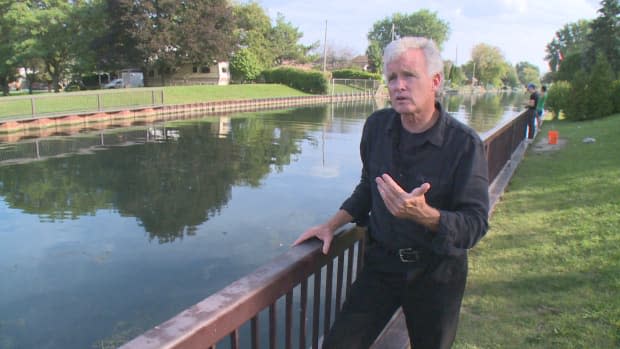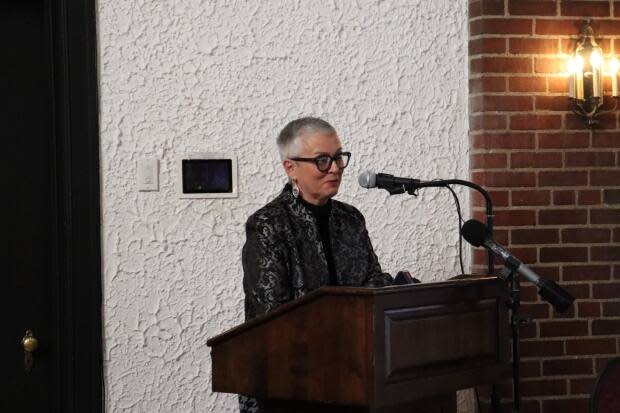Windsor-Essex mayors, builders have 'shared goal' in expanding housing

Windsor-Essex mayors and the Ontario Home Builders Association met Tuesday to discuss plans to build more housing to address growing demand.
"We have a shared goal. We know we have a demand for more housing across Windsor and Essex County and frankly across our province," Windsor Mayor Drew Dilkens said.
"Windsor, like the rest of the province, is experiencing a housing crisis. It is vital that we all work together to build the housing supply this region needs," Ontario Home Builders Association President Louie Zagordo said in an opening speech.
Research shows housing demand twice as high as projected
The conversation around boosting the housing supply comes amid a provincial plan to build 1.5 million more homes in Ontario over the next 10 years. Premier Doug Ford's More Homes Built Faster Act, also known as Bill 23, has not yet passed.
Ford set housing targets for 29 fast-growing municipalities to ensure the province reaches the 1.5 million goal. Windsor is on that list, and is expected to build 13,000 new homes by 2031.
Research released in August shows the number of houses needed to meet demand in the entire Windsor-Essex region in the next decade is 30,000.
The Windsor-Essex Home Builders Association says roughly 1,500 new homes are built yearly in Windsor-Essex. To meet the projected demand, Windsor-Essex has to double that output.
Concerns over conservation areas
At Tuesday's luncheon meeting, Dilkens addressed the issues that come along with rapid housing development, like lack of infrastructure, material supply and environmental concerns about expanding the urban boundary.
"There are lots of different issues in play, and our goal is to try to figure out how to move through all of these pressures," Dilkens said.
In order to meet the demand of building 1.5 million homes, Bill 23 proposes several changes, which include reducing developer charges, allowing more units on one residential lot and pursuing rent-to-own programs.
Dilkens said he has an idea of where the homes will be developed in Windsor.
"If you look at a map of Windsor, it's the area south of the airport," he said. "You can very easily see where the employment lands are, where the greenbelt has been allocated and where the residential space is."

The changes proposed by Bill 23 also impact how Ontario's 36 different conservation districts operate, which has raised concern with Windsor's conservationists.
Earlier this month, the Essex Region Conservation Authority's chief administrative officer, Tim Byrne, raised concerns over these agencies being cut out of development plans in order to hasten the building process.
"The most concerning issue is cutting back on the opportunity of a conservation authorities to provide input in the planning process," Byrne told CBC News.
Infrastructure needed to accommodate growing population
The president of the Windsor Essex Home Builders Association, Vince Lapico, previously told CBC Windsor that there is space for expansion, but the land is not yet usable for new builds.
"We don't have land that has sewers and hydro and, you know, natural gas, those things are all imperative," he said. "You can't put a new subdivision in, you know, on a piece of land if you don't have any place for sewage waste to go."

Leamington Mayor Hilda Macdonald said Tuesday's meeting was an effort to "fine tune a process" to deal with these challenges and have developers build in the region, and that Leamington is prepared to develop housing.
"We are ready for developers to come in and build those properties, so now it's just a matter of come in and build," she said.
Macdonald said some of the more rural communities in Essex County will have more challenges to face around infrastructure.
Dilkens said the rapid construction schedule for Windsor's new, almost $5-billion electric vehicle battery factory will "suck a lot of the skilled trades workers" who are needed to build the homes.
"But it's good news because it's going to bring more workers here who will need more housing," he said.


